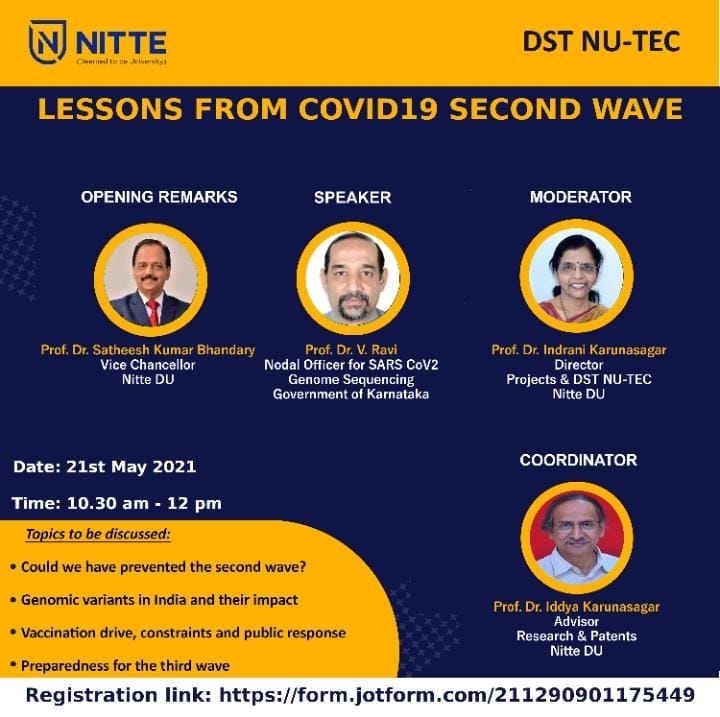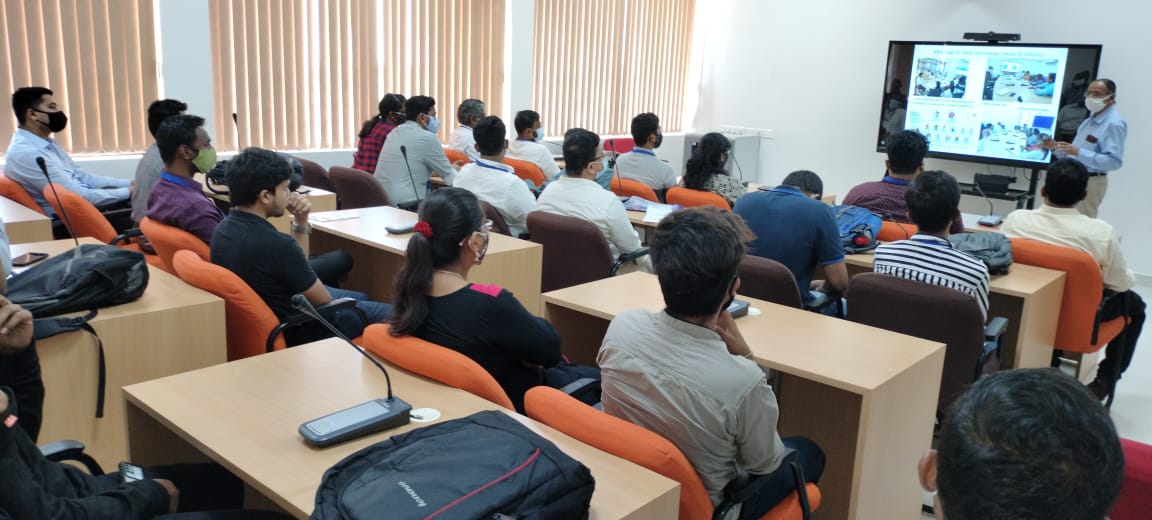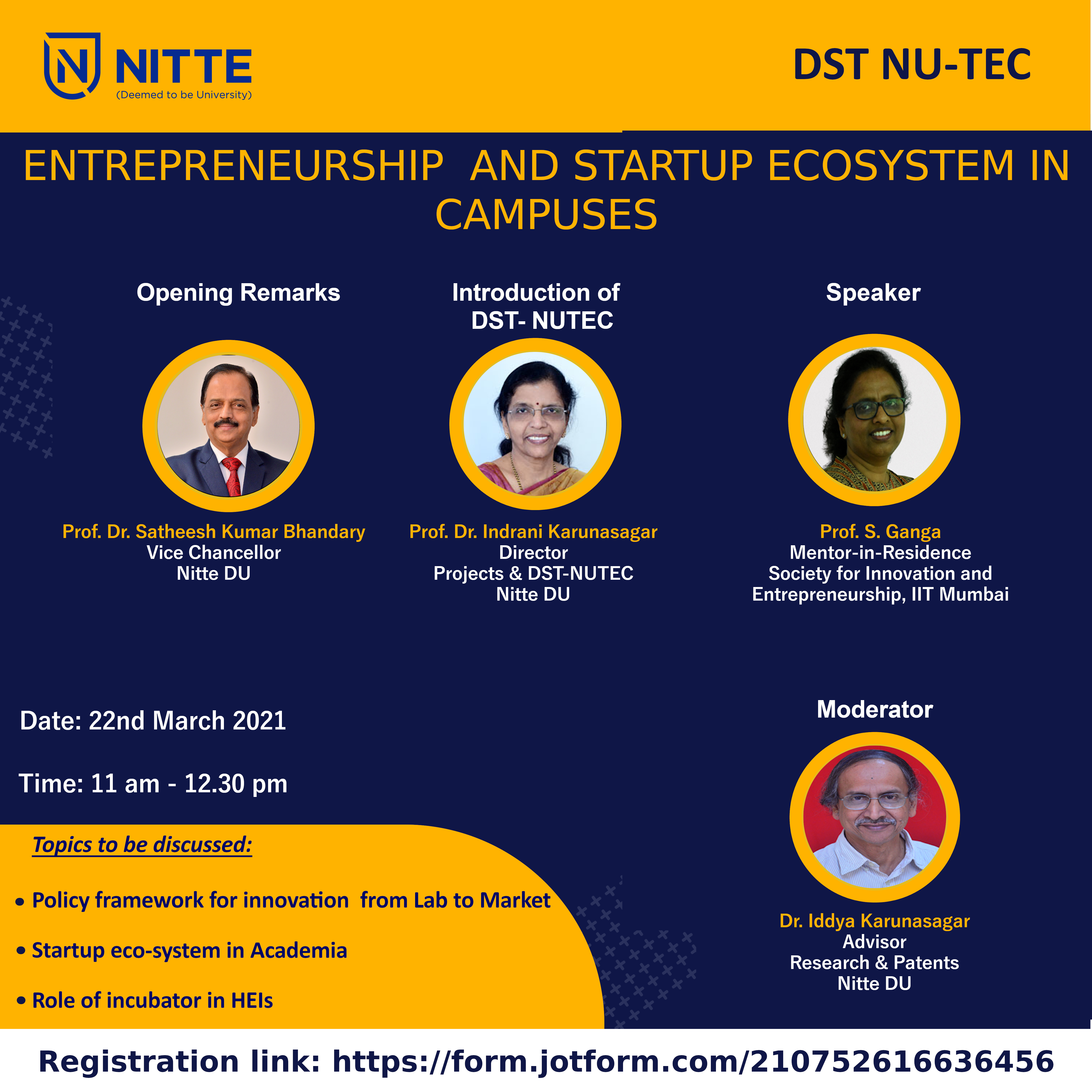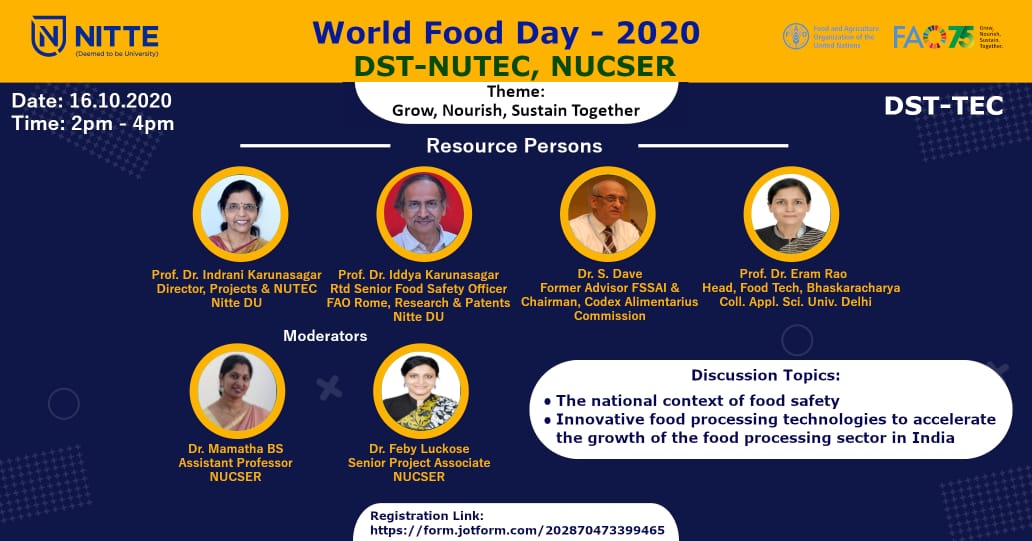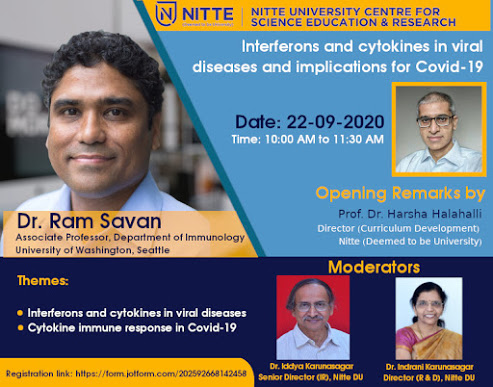Webinar on “Lessons from Covid-19 second wave”
Date : 2021-05-21
Link : https://www.youtube.com/watch?v=th_KncSBrSI
Webinar on “Lessons from Covid-19 second wave” was organized under DST NU-TEC platform on May 21, 2021. Prof. Dr. Satheesh Kumar Bhandary, Vice-Chancellor, Nitte DU in his opening remarks highlighted the importance of the webinar. He noted that as India reels under a massive second wave of the coronavirus pandemic, with an alarming rise in positive cases and deaths, it is important for us to be well prepared to face the unprecedented challenge of third wave ahead. The webinar focused on core topics that included whether the second wave of Covid-19 could have been prevented, impact of genomic variants in India, vaccination drive and its constraints and public response and preparedness for the third wave. The speaker of the webinar Prof Dr V Ravi, Nodal officer for SARS CoV2, Genome Sequencing, Government of Karnataka, summarised lessons from the first and second wave of Covid-19. He asserted that the first wave predominately affected the elderly, people with comorbidites and that the transmission was related to travel history or contact with symptomatic individuals. He further explained that the mortality is linked with aggressive immune response and not the attribute of the virus. However, some of the new variants of virus can be more transmissible than the parent virus. New variations in the virus could be due to the poor proofreading activity of RNA dependent RNA polymerase resulting in the change of amino acid which may happen when virus replicates in a host consequent to the immunological pressure. Implications of the new variant could be in transmission, replication and vaccine escape. Currently there are 5 variants which are of concern. B.1.617.2 is the most predominant circulating strain in Karnataka. To sum up treatment strategy Prof Dr Ravi said that the spectrum of illness was vast affecting multiple systems. Covid-19 related symptoms worsen after 5 days which requires critical monitoring and this fact correlates with the relevance of monitoring inflammatory response and stress markers at this period. Remdesivir, an antiviral drug shows effective results and steroids help to reduce the mortality associated with the disease. Further, he emphasised that vaccines do not prevent the infection rather it reduces the course and severity of illness. There are no significant differences reported in terms of neutralization of Covid-19 variants by various vaccines currently available. In conclusion he noted that emergence of second wave was majorly due to superspreading events like crowding and rise of new virus variants and to tackle the third wave it demands vaccination coverage and Covid appropriate behaviour. The webinar was coordinated by Prof. Dr. Iddya Karunasagar, Senior Director (International Relations) Nitte DU and moderated by Prof Dr. Indrani Karunasagar, Director, DST NU-TEC.
YouTube link: https://www.youtube.com/watch?v=JW2MEfy2CrY
Last updated
2021-06-14 06:19:07
